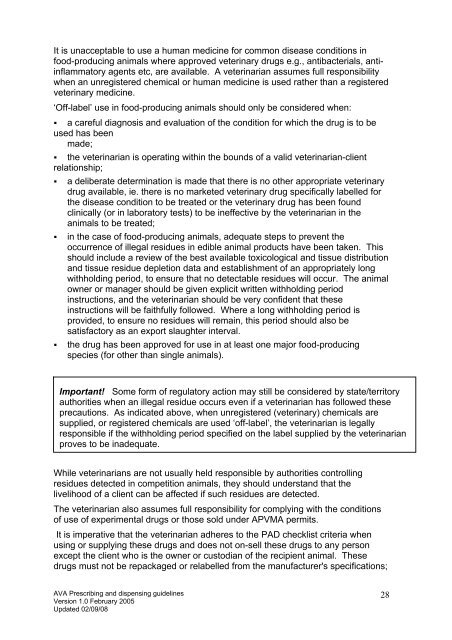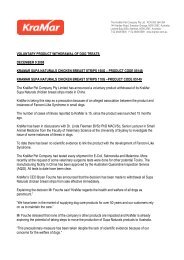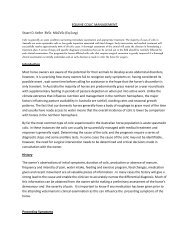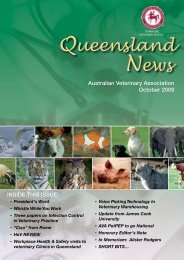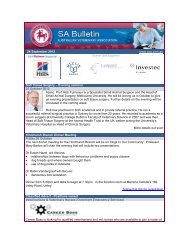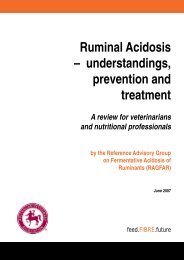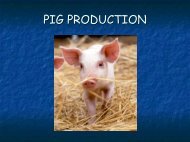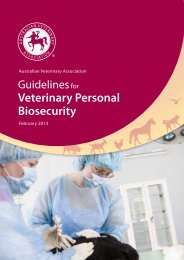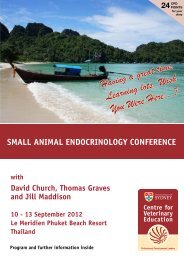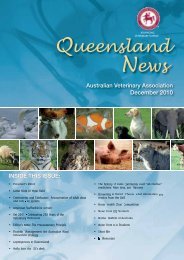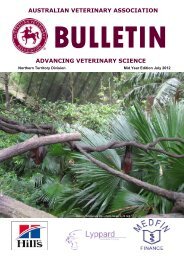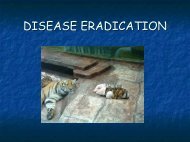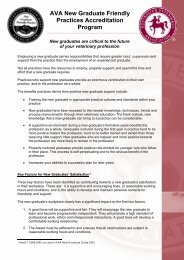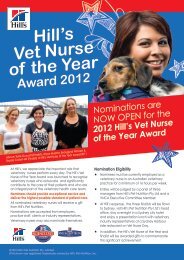Guidelines for Prescribing, Authorising and Dispensing - Australian ...
Guidelines for Prescribing, Authorising and Dispensing - Australian ...
Guidelines for Prescribing, Authorising and Dispensing - Australian ...
You also want an ePaper? Increase the reach of your titles
YUMPU automatically turns print PDFs into web optimized ePapers that Google loves.
It is unacceptable to use a human medicine <strong>for</strong> common disease conditions in<br />
food-producing animals where approved veterinary drugs e.g., antibacterials, antiinflammatory<br />
agents etc, are available. A veterinarian assumes full responsibility<br />
when an unregistered chemical or human medicine is used rather than a registered<br />
veterinary medicine.<br />
‘Off-label’ use in food-producing animals should only be considered when:<br />
� a careful diagnosis <strong>and</strong> evaluation of the condition <strong>for</strong> which the drug is to be<br />
used has been<br />
made;<br />
� the veterinarian is operating within the bounds of a valid veterinarian-client<br />
relationship;<br />
� a deliberate determination is made that there is no other appropriate veterinary<br />
drug available, ie. there is no marketed veterinary drug specifically labelled <strong>for</strong><br />
the disease condition to be treated or the veterinary drug has been found<br />
clinically (or in laboratory tests) to be ineffective by the veterinarian in the<br />
animals to be treated;<br />
� in the case of food-producing animals, adequate steps to prevent the<br />
occurrence of illegal residues in edible animal products have been taken. This<br />
should include a review of the best available toxicological <strong>and</strong> tissue distribution<br />
<strong>and</strong> tissue residue depletion data <strong>and</strong> establishment of an appropriately long<br />
withholding period, to ensure that no detectable residues will occur. The animal<br />
owner or manager should be given explicit written withholding period<br />
instructions, <strong>and</strong> the veterinarian should be very confident that these<br />
instructions will be faithfully followed. Where a long withholding period is<br />
provided, to ensure no residues will remain, this period should also be<br />
satisfactory as an export slaughter interval.<br />
� the drug has been approved <strong>for</strong> use in at least one major food-producing<br />
species (<strong>for</strong> other than single animals).<br />
Important! Some <strong>for</strong>m of regulatory action may still be considered by state/territory<br />
authorities when an illegal residue occurs even if a veterinarian has followed these<br />
precautions. As indicated above, when unregistered (veterinary) chemicals are<br />
supplied, or registered chemicals are used ‘off-label’, the veterinarian is legally<br />
responsible if the withholding period specified on the label supplied by the veterinarian<br />
proves to be inadequate.<br />
While veterinarians are not usually held responsible by authorities controlling<br />
residues detected in competition animals, they should underst<strong>and</strong> that the<br />
livelihood of a client can be affected if such residues are detected.<br />
The veterinarian also assumes full responsibility <strong>for</strong> complying with the conditions<br />
of use of experimental drugs or those sold under APVMA permits.<br />
It is imperative that the veterinarian adheres to the PAD checklist criteria when<br />
using or supplying these drugs <strong>and</strong> does not on-sell these drugs to any person<br />
except the client who is the owner or custodian of the recipient animal. These<br />
drugs must not be repackaged or relabelled from the manufacturer's specifications;<br />
AVA <strong>Prescribing</strong> <strong>and</strong> dispensing guidelines<br />
Version 1.0 February 2005<br />
Updated 02/09/08<br />
28


